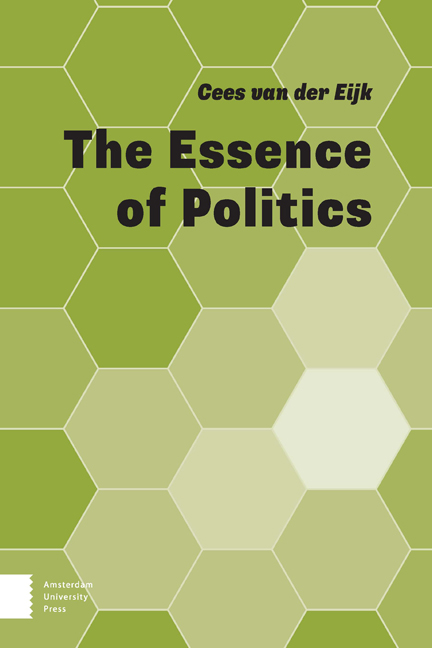Book contents
- Frontmatter
- Dedication
- Preface
- Contents
- Chapter 1 What is Politics?
- Chapter 2 Conflict and Cooperation
- Chapter 3 Key Questions
- Chapter 4 Political Actors
- Chapter 5 Political Conflicts
- Chapter 6 Political Power
- Chapter 7 The Political Landscape and the Wider Context
- Chapter 8 The Political System and the Political Community
- Bibliography
Chapter 3 - Key Questions
- Frontmatter
- Dedication
- Preface
- Contents
- Chapter 1 What is Politics?
- Chapter 2 Conflict and Cooperation
- Chapter 3 Key Questions
- Chapter 4 Political Actors
- Chapter 5 Political Conflicts
- Chapter 6 Political Power
- Chapter 7 The Political Landscape and the Wider Context
- Chapter 8 The Political System and the Political Community
- Bibliography
Summary
In Chapters 1 and 2 I explained how we distinguish ‘politics’ from other human activities and interactions. As indicated in Chapter 1, the character of this concept makes it impossible to define it exhaustively and without any ambiguity. One might therefore wonder what the point is of trying to define the term if its definition cannot be expected to be entirely clear-cut or uncontested. The reason for doing so is that in order to understand political phenomena one has to address a set of ‘key’ questions. These questions are not pertinent for understanding other phenomena, such as those with a predominantly economic, psychological or legal character, for example. This chapter therefore briefly presents these questions, which are essential for comprehending political matters, while later chapters deal with them in more detail.
The reason for considering these questions to be ‘key’ is that they are used, implicitly or explicitly, by political analysts of very different theoretical backgrounds. There is evidently, and despite differences about how to distinguish the ‘political’ from other matters, broad agreement that these questions must be taken up when dealing with politics. This reflects, as mentioned in Chapter 1, that such theoretical, conceptual and paradigmatic disagreements are far from absolute, and that theorists largely agree on how to distinguish between political and other matters.
Before discussing these key questions, a few cautionary remarks must be made. First, these questions do not exhaust what one needs to know about political phenomena, either in their specificity or in general. On the contrary, analysts ask all kinds of additional questions, some of which they also consider to be of key importance. Yet there is less agreement about these additional questions, and some of them are clearly tied to the specific theoretical and paradigmatic perspectives embraced by the analysts in question. In other words, the key questions presented here constitute a kind of common denominator, and need in every concrete application to be supplemented by other ones. A second remark is that the various questions cannot be answered satisfactorily in isolation. They are interconnected, which implies that each one affects how we answer the other ones. It also implies that addressing them will often require several turns, until the answers to all of them are satisfactory.
- Type
- Chapter
- Information
- The Essence of Politics , pp. 43 - 54Publisher: Amsterdam University PressPrint publication year: 2018



